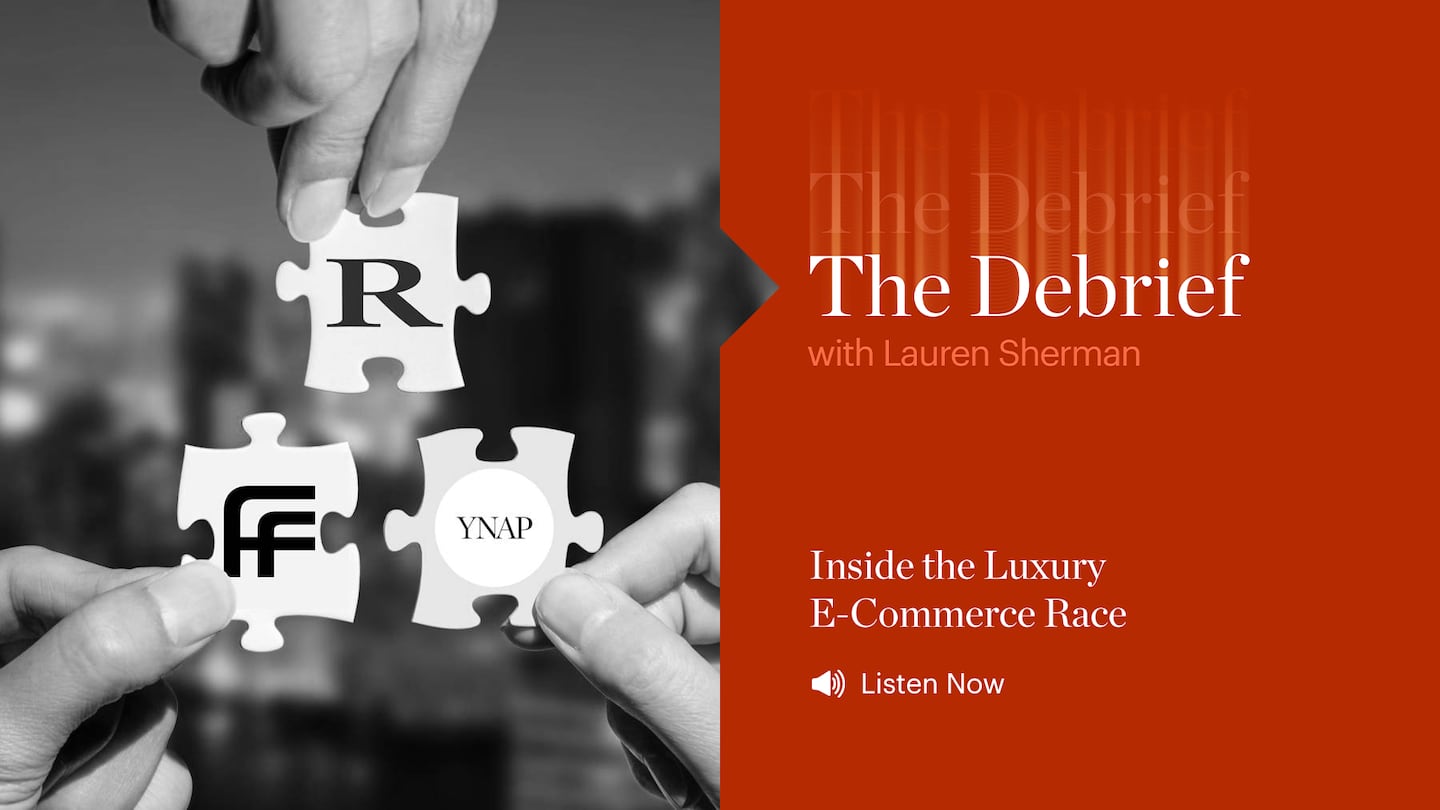
The Business of Fashion
Agenda-setting intelligence, analysis and advice for the global fashion community.

Agenda-setting intelligence, analysis and advice for the global fashion community.

Follow The Debrief wherever you listen to podcasts.
The launch of Net-a-Porter in 2000 changed fashion forever, heralding the first phase of luxury e-commerce, and inspiring a slew of competitors to get in the game. But in an increasingly competitive market, e-tailers have struggled to retain pricing power and turn a profit. Now, the space is starting to see some consolidation. In August, Farfetch took a stake in Yoox-Net-a-Porter Group, which laid the groundwork for an eventual acquisition, and allowed Richemont to offload the platform — which had long weighed on its portfolio.
“This deal is a pretty major step for Farfetch in terms of setting up the platform to solidify a dominant position… YNAP was Farfetch’s biggest competitor,” said Tamison O’Connor, BoF luxury correspondent.
The Coach owner’s results will provide another opportunity to stick up for its acquisition of rival Capri. And the Met Gala will do its best to ignore the TikTok ban and labour strife at Conde Nast.
The former CFDA president sat down with BoF founder and editor-in-chief Imran Amed to discuss his remarkable life and career and how big business has changed the fashion industry.
Luxury brands need a broader pricing architecture that delivers meaningful value for all customers, writes Imran Amed.
Brands from Valentino to Prada and start-ups like Pulco Studios are vying to cash in on the racket sport’s aspirational aesthetic and affluent fanbase.